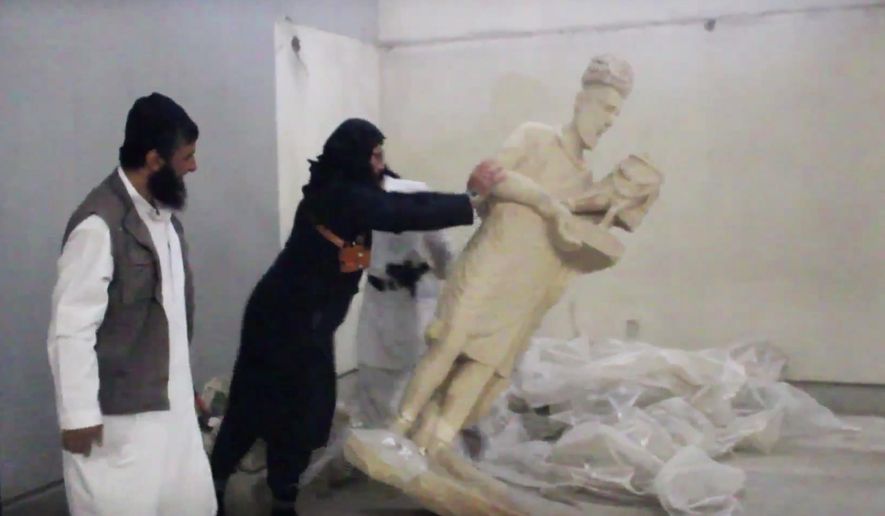The FBI on Wednesday urged art dealers in the U.S. to take extra precautions when buying artifacts from the Middle East, saying there is evidence that collectors may have been offered priceless artifacts plundered by Islamic State militants in Iraq and Syria.
Islamic State militants have used the money from sales of stolen antiquities to fund their terrorist activities, and there is growing concern those items are showing up in the Western marketplace, the FBI said.
“We now have credible reports that U.S. persons have been offered cultural property that appears to have been removed from Syria and Iraq recently,” said Bonnie Magness-Gardiner, manager of the FBI’s art program in a statement Wednesday, Reuters reported.
Ms. Magness-Gardiner urged collectors and buyers to be vigilant in checking important provenance and other documents for pieces of art coming from the Middle East.
“What we’re trying to say is, don’t allow these pieces that could potentially support terrorism to be part of the trade,” she said, Reuters reported.
The Islamic Stage militant group, also known as ISIS or ISIL, has looted and destroyed ancient historical sites in northern Iraq and Syria, touting the destruction in photos and videos posted on social media.
The group seeks to demolish pre-Islamic monuments and temples they consider idolatrous.
This week, the group published photos purported to show the demolition of the 2,000 year old Roman-era Baal Shamin temple in the ancient city of Palmyra in Syria, an act that the U.N. cultural agency UNESCO has called a war crime.
Before the city was captured by the militants, Syrian officials moved hundreds of ancient statues and artifacts to safe locations to keep them from the hands of the militants.
Reports surfaced several days earlier that the militants had executed an 82-year-old antiquities expert in the city because he would not reveal the location of the priceless statues.
Last month, the U.S. returned antiquities to Iraq it said had been seized in a raid on Islamic State fighters in Syria, saying the retrieval was proof the group was attempting to sell the items to raise cash.
The stolen antiques have been dubbed “blood antiques,” adapted from the term “blood diamonds” used to refer to gems that financed fighters in African wars from Angola to Sierra Leone.
• Kellan Howell can be reached at khowell@washingtontimes.com.




Please read our comment policy before commenting.